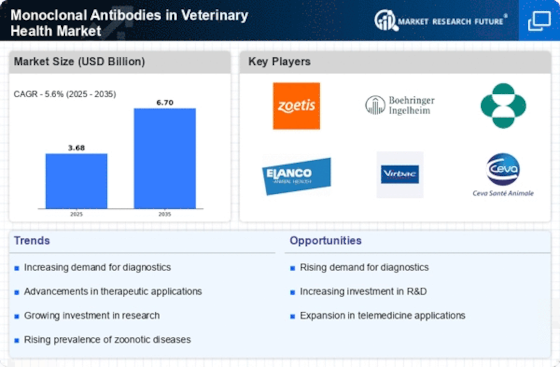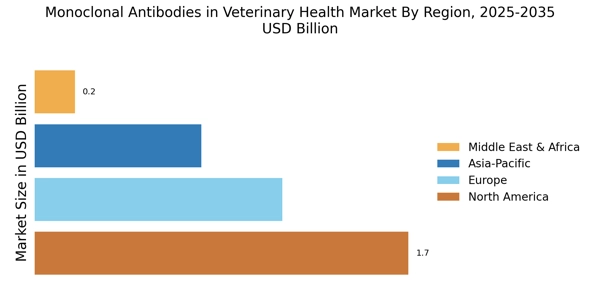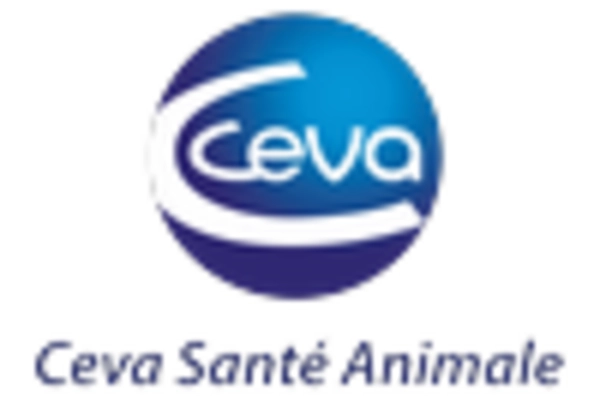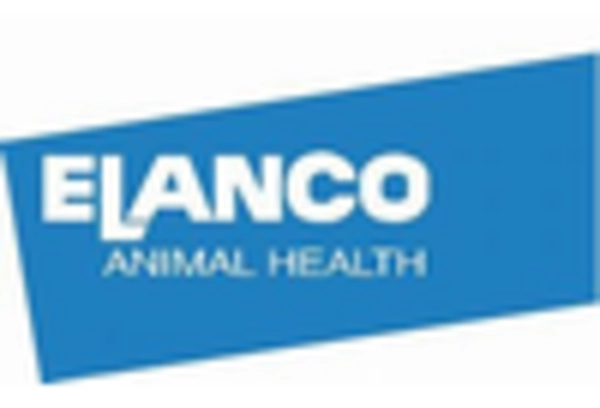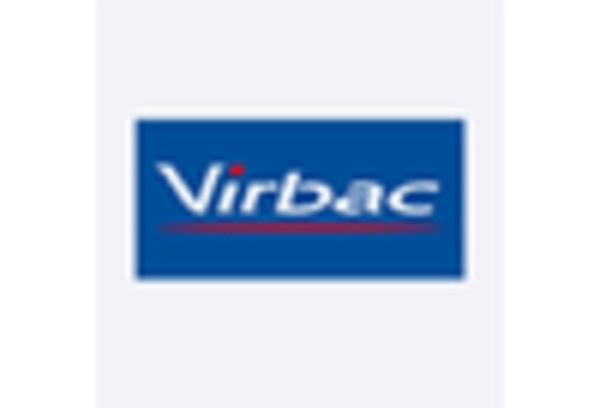Advancements in Biotechnology
Technological advancements in biotechnology are playing a pivotal role in shaping the Monoclonal Antibodies in Veterinary Health Market. Innovations in genetic engineering and hybridoma technology have facilitated the development of highly specific monoclonal antibodies that can target various pathogens in animals. This has led to the introduction of novel therapeutic and diagnostic products that are more effective than traditional treatments. The market is witnessing a shift towards these advanced solutions, as they offer improved efficacy and safety profiles. Furthermore, the increasing collaboration between research institutions and biotechnology companies is expected to accelerate the pace of innovation, thereby enhancing the overall growth trajectory of the Monoclonal Antibodies in Veterinary Health Market.
Regulatory Support for Biologics
Regulatory frameworks are evolving to support the development and approval of biologics, including monoclonal antibodies, in the veterinary sector. The Monoclonal Antibodies in Veterinary Health Market is poised to benefit from these changes, as regulatory agencies are streamlining processes to facilitate faster access to innovative therapies. This supportive environment encourages investment in research and development, leading to a more robust pipeline of monoclonal antibody products. As regulations become more favorable, companies are likely to increase their focus on bringing new monoclonal antibody therapies to market, which could significantly enhance the competitive landscape of the Monoclonal Antibodies in Veterinary Health Market.
Increased Focus on Animal Welfare
The Monoclonal Antibodies in Veterinary Health Market is also benefiting from the heightened focus on animal welfare. As societal attitudes shift towards more humane treatment of animals, there is a growing emphasis on providing effective and safe medical interventions. Monoclonal antibodies are gaining traction as they align with these values, offering targeted therapies that minimize adverse effects. This trend is particularly evident in the companion animal sector, where pet owners are increasingly willing to invest in advanced healthcare solutions. The market is likely to see a rise in the adoption of monoclonal antibodies as part of a broader commitment to improving animal welfare standards, thereby driving growth in the Monoclonal Antibodies in Veterinary Health Market.
Rising Incidence of Animal Diseases
The Monoclonal Antibodies in Veterinary Health Market is significantly influenced by the rising incidence of infectious and chronic diseases in animals. The prevalence of conditions such as canine parvovirus, feline leukemia, and various bacterial infections has prompted veterinarians to seek more effective treatment options. This growing concern over animal health is driving the demand for monoclonal antibodies, which are recognized for their targeted action and minimal side effects. Market data indicates that the veterinary monoclonal antibody segment is expected to witness substantial growth, as these therapies are increasingly adopted for both companion animals and livestock. The urgency to address these health challenges is likely to further stimulate the Monoclonal Antibodies in Veterinary Health Market.
Growing Demand for Animal Health Products
The Monoclonal Antibodies in Veterinary Health Market is experiencing a notable surge in demand for advanced animal health products. This trend is largely driven by the increasing awareness among pet owners and livestock producers regarding the benefits of preventive healthcare. As a result, the market for monoclonal antibodies is projected to expand significantly, with estimates suggesting a compound annual growth rate of over 10% in the coming years. This growth is indicative of a broader shift towards more effective and targeted therapies in veterinary medicine, which are perceived to enhance the quality of life for animals and improve overall herd health. Consequently, the rising demand for innovative treatment options is likely to propel the Monoclonal Antibodies in Veterinary Health Market forward.


